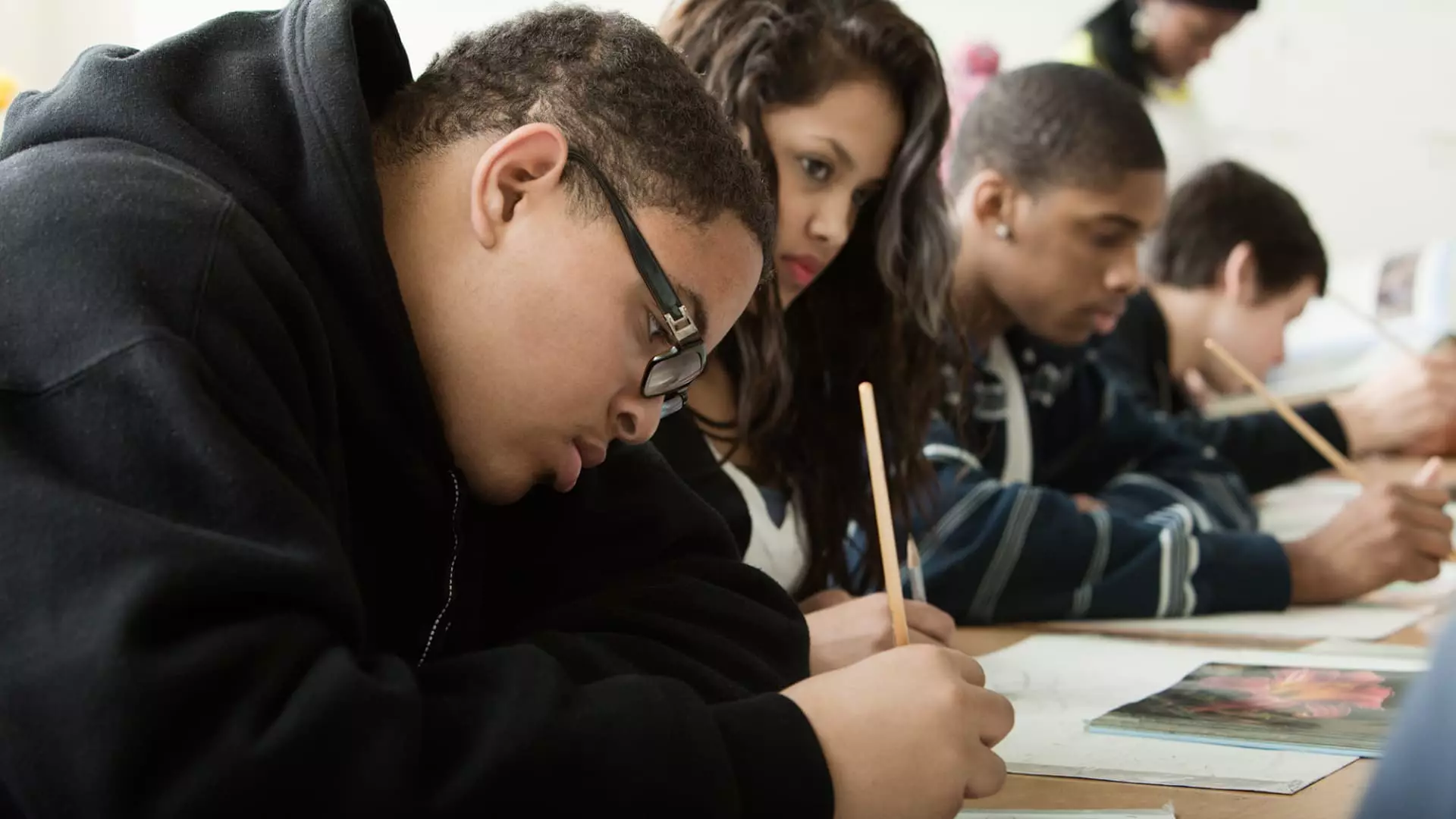In the complex landscape of today’s economy, financial literacy emerges as a crucial skill for young adults. The ability to make informed decisions concerning budgeting, saving, investing, and managing debt is essential for fostering economic independence. Educational institutions have the responsibility to equip students with these tools, and KIPP DC College Preparatory’s NAF Academy of Business serves as an exemplary model. Here, students immerse themselves in a robust curriculum tailored to prepare them for both college and the financial realities of adult life.
Among the many ambitious students is Keith Harris, a 17-year-old senior at KIPP DC College Preparatory. His passion for accounting, budgeting, and investing has shaped his high school experience significantly. Unlike standard semester-long personal finance courses that many schools offer, Harris engages in a comprehensive three-year program that not only delves into essential financial topics but integrates real-world applications through internships, thereby cultivating a hands-on learning environment.
Harris’s ability to secure a full scholarship for his post-secondary education is a testament to the impact of the NAF Academy of Business. By teaching students how to manage finances and invest wisely, the program sets a foundational skill set that empowers them to make sound financial choices. This approach fosters a sense of financial confidence that is invaluable as they transition into adulthood.
A Cultural Shift Towards Financial Literacy
The overarching mission of KIPP DC College Prep, articulated by its CEO Shavar Jeffries, is to “break cycles of poverty.” This mission resonates strongly in communities where financial education has historically been inadequate. The school caters to underserved populations, and its 100% college acceptance rate among its senior class highlights the success of its programming.
The provision of financial literacy education contributes significantly to the cultural shift regarding financial responsibility. As students absorb lessons about spending, saving, and risk management, they not only enhance personal financial knowledge but also embody a mindset change that promotes long-term financial well-being.
Harris is not alone in benefiting from the program’s internship opportunities. Peers like Donyae Vaughan, another senior, has gained valuable experience through her summer internship at Accenture. This practical exposure complements academic learning, allowing students to apply theoretical knowledge in workplace settings. Vaughan’s experience showcases how financial education and real-world applications go hand in hand, fostering not only professional competence but also financial awareness regarding investments and savings.
The connections that KIPP has forged with organizations such as Ernst & Young and Verizon further enrich the learning experience and open doors for student engagement in industries that demand robust financial understanding. These partnerships provide a platform for students to network and cultivate professional relationships, enhancing their career readiness.
Nationally, there has been a movement towards integrating financial literacy into high school curriculums. As of 2024, many states are on the path to requiring students to take at least one course in financial literacy prior to graduation. This mandates not only reflect a recognition of the importance of financial education but also indicate a commitment to closing gaps that have historically left low-income students at a disadvantage.
Raven Newberry, a managing director at the National Endowment for Financial Education, emphasizes the correlation between financial literacy programs and improved financial outcomes among students. Data suggests that a solid foundation in financial education results in better credit scores and lower delinquency rates, reinforcing the notion that early education in financial matters can pave the way for future financial stability.
As KIPP DC College Preparatory continues to foster a culture of financial literacy, its students, like Keith Harris and Donyae Vaughan, exemplify the potential of such educational initiatives. With growing acknowledgment of the necessity for financial education in schools, institutions like KIPP offer models that help bridge the divide, empowering young individuals to approach their financial futures with knowledge and confidence.
The value of financial literacy extends beyond individual students; it has the potential to affect family dynamics and community structures. By instilling these skills, KIPP DC College Preparatory contributes to the larger goal of creating more financially literate and responsible citizens who can navigate the complexities of their economic environments.

Leave a Reply